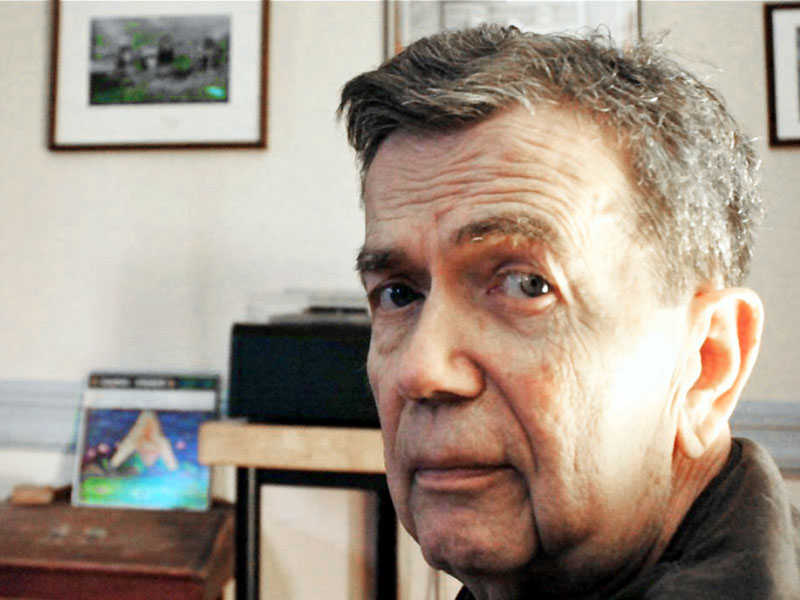Remembering Harry
esterday morning I opened my e-mail and discovered that Harry H. Pearson, Jr., founder and for more than 30 years Editor-In-Chief of The Abso!ute Sound, had passed away on Tuesday evening. I was not shocked -- Harry was 77 -- but I was still stunned.
I discovered high-end audio while I was in law school in Boston during the mid-1980s, and TAS was the first underground audio publication I read. I was immediately drawn to, and fascinated with, the writings of Harry Pearson, "HP" as he was known to one and all. His vocabulary and the subtlety of his systemic, observational technique to the analysis of audio components captivated me. I had been a reader of the mainstream audio press such as High Fidelity, Stereo Review, and Audio for years, but I had grown increasingly disenchanted with them. "Everything sounds the same" was their basic credo, and I knew that this was not true from my experiences as a bass guitarist since 1972. Different instruments sound different, and different amplifiers sounded different to me. But I never transferred this experience to the realm of audio equipment until I read the work of Harry Pearson. For the next few years I devoured every issue of TAS, rereading them multiple times and teaching myself how to listen for and hear the subtle but ever more evident differences between different components. Had it not been for Harry, I never would have undertaken the task. He literally inspired me to do it. In the mid-1990s, I struck up a correspondence (via the US Postal Service in those pre-e-mail days) about music and audio with Frank Doris, a TAS editor and Harry's long-suffering setup man. The time came when Frank asked me if I'd be willing to submit a couple of music reviews for HP to look at. I did, the pieces were accepted, and a dream came true: seeing my byline in the storied pages of TAS. A few months later, Frank's successor, Scot Markwell, asked me if I would like to submit an equipment review for consideration. I agreed and wrote the review, which Harry approved and published. After that I became a regular contributor, although I was still terrified of HP, who seemed a larger-than-life presence, towering over the world of high-end audio like a Goliath. A mutual friend who briefly wrote for the magazine assured me that Harry hated kiss-ups and liked to bluff people to see if they had the courage of their convictions, could back them up, and stand up to him. It took a while for me to internalize that, although Harry was always supportive and helpful in his comments and feedback on my work, and we developed a friendly, bantering relationship. One of the proudest days of my life came on a Friday evening when he called me to say, "Paul, I wish I had written that review" -- of the Ayre V1 power amplifier, back in 1998 or so. To list Harry Pearson's contributions to the audio world would take far longer than this brief remembrance permits, but his acuity in describing sound and literally inventing an accurate vocabulary that has been adopted and built upon by reviewers around the world for the last 35 years is an accomplishment of immense proportions. It may be hard to believe, but once upon a time terms such as soundstage, transparency, immediacy and image placement did not exist to describe the sound of hi-fi gear. Before Harry Pearson, that is. He was right about so many things, years in advance of the rest of the audio press. Harry got it, understood it, and communicated it with an exemplary clarity of expression, often leavened by a sharp yet puckish sense of humor. He loved music and took it as seriously as anyone ever could. He also knew music and could discuss the subtleties of performance with the same ease and mastery he showed in speaking of the equipment. I had never investigated the work of Edward Elgar, Ralph Vaughan Williams and the entire school of 20th-century English composers until Harry discussed their works, as he so often did in his equipment reviews. Without Harry I would have come to it, but much later. That music has become one of the touchstones of my musical life, and the variety of music to which he introduced his readers was vast. He cared deeply about making the glorious experience of music as meaningful as possible in the listener's room. Harry gave me the chance to write about something I loved and I told him on several occasions that I owed him a debt that I could never repay for doing so. He said I owed him nothing but sincerely thanked me for the thought, saying, "I never would have given you the chance if I didn't think you could do it" in his still-Southern-accented bearish-but-friendly growl. So goodbye, Harry. You made my life, and the lives of
many tens of thousands of music lovers and audio enthusiasts around the world, far better
and more interesting. You were an inspiration, a teacher and mentor, a friend, and a
visionary. There will never be another one like you. We will miss your wisdom, your
exquisite taste, your insight and companionship. I will personally miss you sneaking up on
me at shows and slapping me on the back to watch me jump. You will be deeply, deeply
missed, but you left a remarkable legacy, and no man can ask more from life than that. |

